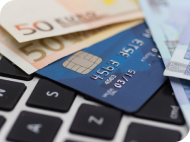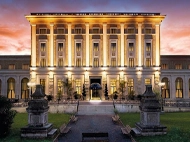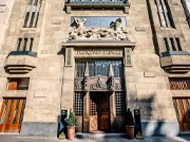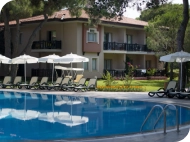-
Your money is secured in a trust account
Unlike many other travel companies we operate on a trust account model. Once we’ve paid the airline for your flights, the rest of your money is held in a trust account. We do not have access to this directly and can only withdraw funds when you are back home from holiday
-
We're ATOL protected
All of our holidays that include flights are protected by the ATOL scheme from the moment you book. So if one of our suppliers fails, you’ll get your money back. If you’re left stranded abroad, a flight home will be arranged at no extra cost. Our ATOL number is 11806
-
We're ABTA registered
As proud ABTA members we deliver the highest standards when it comes to our holidays. So if you book with us you’re guaranteed the best service. Our ABTA number is P8283, Y6720.
-
-
Hotels
-
Balearic Islands hotels
- Balearic Islands hotels
-
- Balearic Islands hotels
- Sol House The Studio, Majorca
- Sol Palmanova Mirlos, Majorca
- Sol Barbados, Majorca
- Hard Rock Hotel, Ibiza
- Gran Palladium Ibiza Resort, Ibiza
- Grand Palladium White Island Resort & Spa, Ibiza
- Hoposa Pollentia, Majorca
- Sol Katmandu Park & Resort, Majorca
- Palladium Hotel Palmyra, Ibiza
- Cook's Club
-
Canary Islands hotels
- Canary Islands hotels
-
- Canary Islands hotels
- Hard Rock Hotel, Tenerife
- Paradise Island, Lanzarote
- Hotel Best Jacaranda, Tenerife
- Princesa Yaiza Suite Hotel Resort, Lanzarote
- Bahia Principe Fantasia, Tenerife
- Hotel THe Valle Taurito, Gran Canaria
- GF Gran Costa Adeje, Tenerife
- Sol Lanzarote
- Hotel The Lago Taurito, Gran Canaria
- Bahia Principe Sunlight Costa Adeje, Tenerife
- Cyprus hotels
- Egypt hotels
-
Greece hotels
- Greece hotels
-
- Greece hotels
- Casa Cook, Rhodes
- Corfu Holiday Palace
- The Ixian Grand
- Mitsis Alila Resort & Spa, Rhodes
- Mitsis Blue Domes Resort & Spa , Kos
- Mitsis Family Village, Kos
- Mitsis Laguna Resort & Spa, Crete
- Mitsis Norida Beach
- Mitsis Petit Palais
- Mitsis Summer Palace, Kos
- Mitsis Rodos Maris
- Radisson Blu Beach Resort Milatos, Crete
- Virginia Family Resort
- Zante Atlantis, Zante
- Zante Plaza Hotel & Apartments, Zante
-
Portugal hotels
- Portugal hotels
-
- Portugal hotels
- Jupiter Albufeira Hotel - Family & Fun, Algarve
- Adriana Beach Club, Algarve
- Tivoli Marina Vilamoura, Algarve
- Crowne Plaza Vilamoura, Algarve
- The Lake Resort, Algarve
- Pestana Blue Alvor, Algarve
- Be Live Family Palmeiras Village, Algarve
- Anantara Vilamoura, Algarve
- Hilton Vilamoura As Cascatas Golf Resort & Spa, Algarve
- Spain hotels
-
Turkey hotels
- Turkey hotels
-
- Turkey hotels
- Club Hotel Meri, Oludeniz
- Granada Luxury, Belek
- The Land of Legends Kingdom, Belek
- Side Crown Serenity, Antalya
- Royal Seginus, Antalya
- Eftalia Ocean, Antalya
- Delphin Be Grand Resort, Lara
- Delphin Imperial, Antalya
- Long Beach Resort Hotel & Spa Deluxe, Antalya
- Eftalia Aqua Hotel, Antalya
- Granada Luxury, Belek
- Vikingen Infinity Resort & Spa
- Hotel brands
-
Balearic Islands hotels
-



-

Top 5 fun family waterpark hotels
Explore more
6 of the best toddler friendly holidays
Explore more
5 of the top hotels in Greece
Explore more











